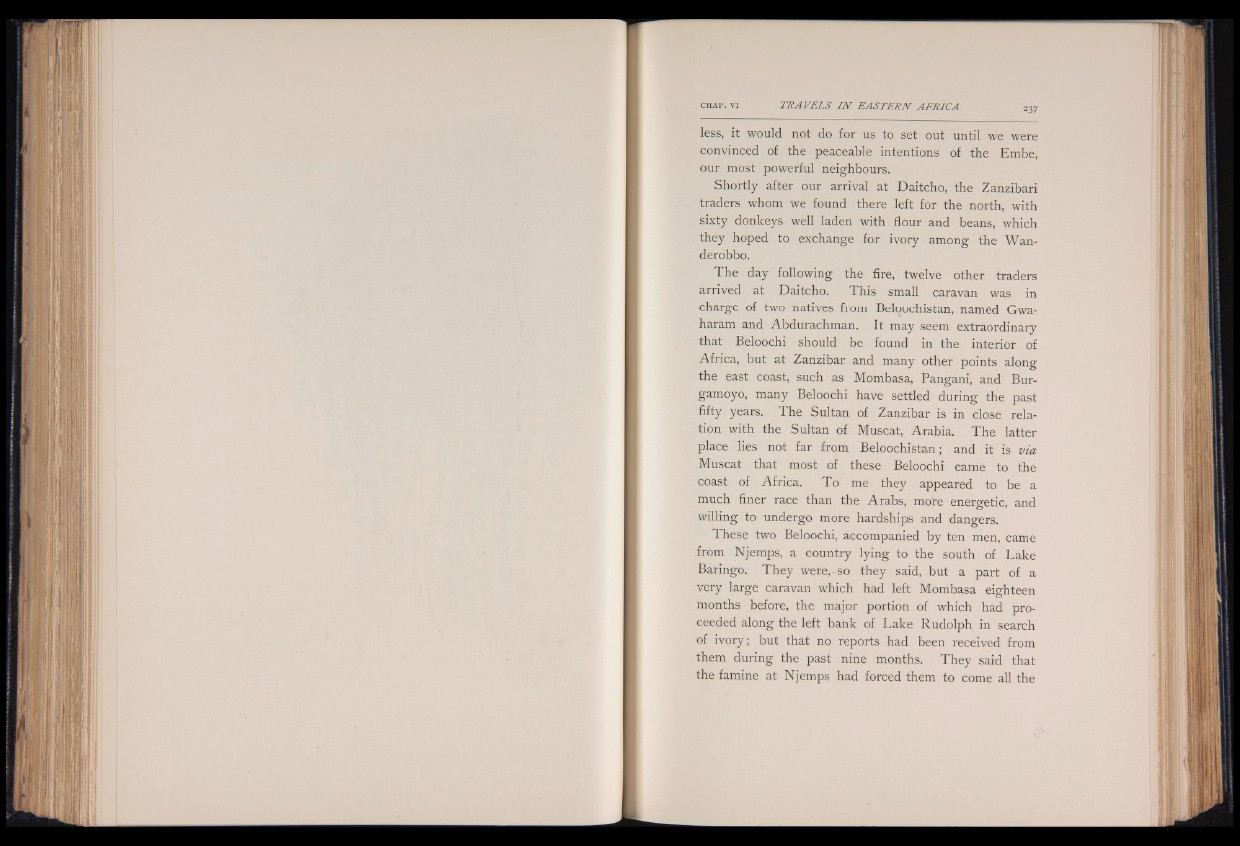
less, it would not do for us to set out until we were
convinced of the peaceable intentions of the Embe,
our most powerful neighbours.
Shortly after our arrival at Daitcho, the Zanzibari
traders whom we found there left for the north, with
sixty donkeys well laden with flour and beans, which
they hoped to exchange for ivory among the Wan-
derobbo.
The day following the fire, twelve other traders
arrived at Daitcho. This small caravan was in
charge of two natives from Beloochistan, named Gwa-
haram and Abdurachman. It may seem extraordinary
that Beloochi should be found in the interior of
Africa, but at Zanzibar and many other points along
the east coast, such as Mombasa, Pangani, and Bur-
gamoyo, many Beloochi have settled during the past
fifty years. The Sultan of Zanzibar is in close relation
with the Sultan of Muscat, Arabia. The latter
place lies not far from Beloochistan; and it is via
Muscat that most of these Beloochi came to the
coast of Africa. To me they appeared to be a
much finer race than the Arabs, more energetic, and
willing to undergo more hardships and dangers.
These two Beloochi, accompanied by ten men, came
from Njemps, a country lying to the south of Lake
Baringo. They were, so they said, but a part of a
very large caravan which had left Mombasa eighteen
months before, the major portion of which had proceeded
along the left bank of Lake Rudolph in search
of ivory; but that no reports had been received from
them during the past nine months. They said that
the famine at Njemps had forced them to come all the